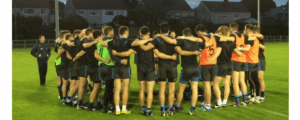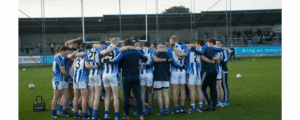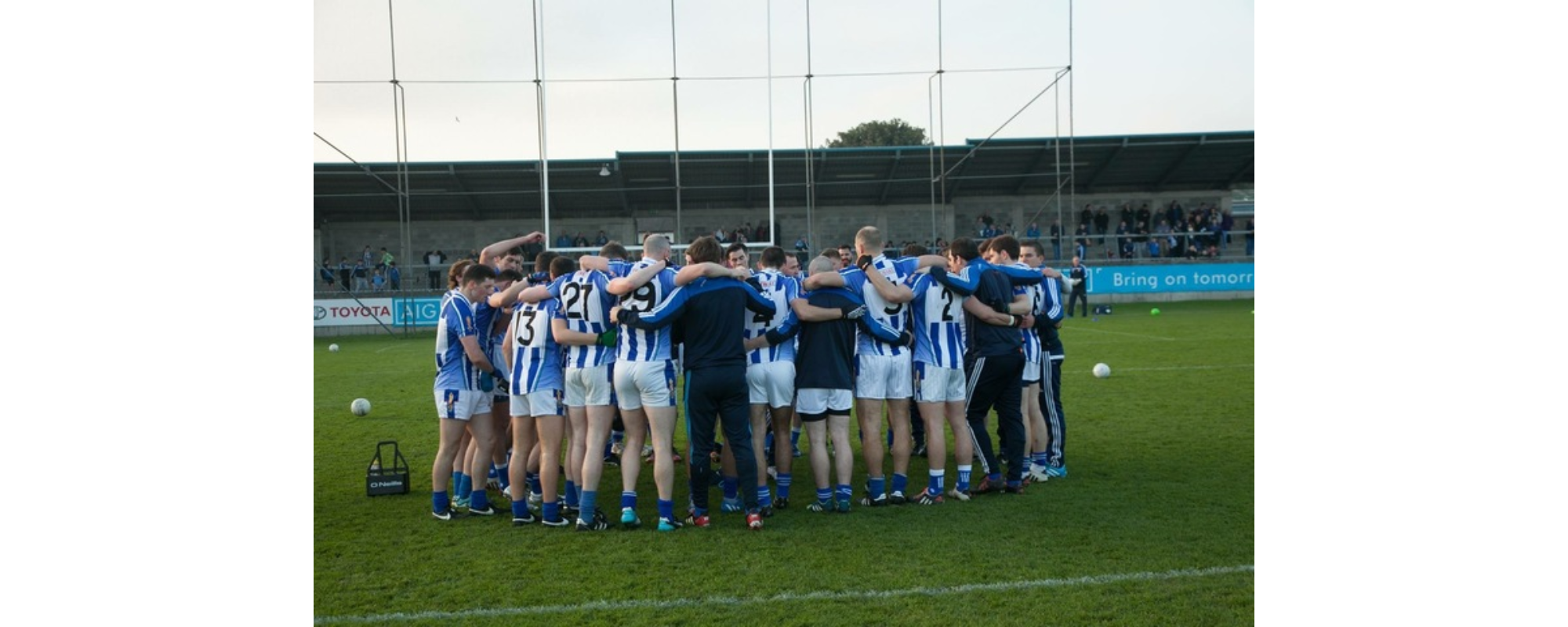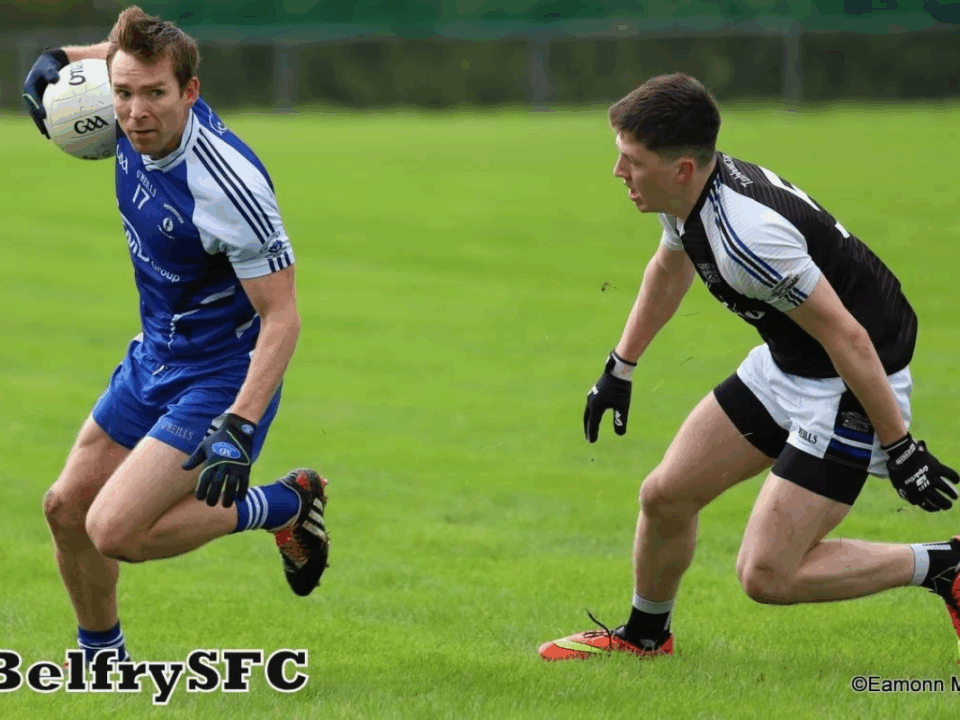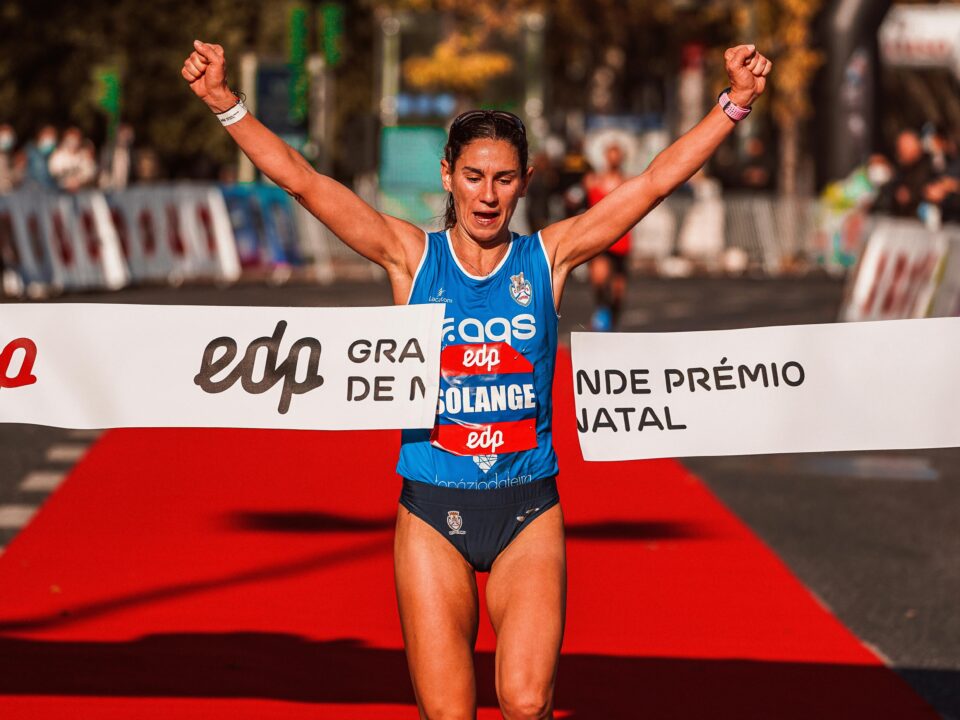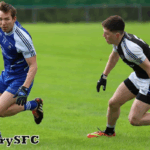
The Challenge of Enjoyment in Sport
September 3, 2025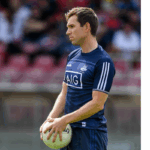
Getting Back on Track After a Setback
September 18, 2025
The Challenge of Enjoyment in Sport
September 3, 2025
Getting Back on Track After a Setback
September 18, 2025A Pint with John Fogarty
I remember having a beer one night with John Fogarty. It was late after a big end of season win with Leinster — I think it was after the European Cup final in 2018. John was part of the Leinster backroom team then, and he has since become part of the senior Irish rugby team backroom staff.
He is a great character, brilliant at building rapport with athletes, and a real energy giver to the environment. I always valued his opinion.
That night he said something that stuck with me. We were talking about the role of management in finals week when things matter most.
“It is very simple. The key messages players need the week of a big game are short and clear. The work is already done long before that week.”
That summed it up perfectly. Players don’t need more. They need simplicity and reassurance.
The Problem With Game Week
I have never spoken to an athlete who wished for more team meetings, or longer ones, in the week of a big game. In fact, the opposite is true.
The temptation is to add more: more analysis, more meetings, more detail. But too much often does more harm than good.
The brain makes up just 2% of body weight but uses close to 20% of the body’s energy every day (Raichle & Gusnard, 2002). When attention is pulled in many directions, that energy is drained even faster. Research from UCL shows that when we concentrate hard, the brain reallocates energy to the task, reducing what is available elsewhere (Meyniel et al., 2020).
Even highly motivated people cannot sustain full concentration for very long. Studies show focused attention begins to drop after 15–20 minutes (Wilson & Korn, 2007). Long, detailed meetings in game week are not just unnecessary, they are counterproductive.
A Player’s Example
When I worked with Dublin, one player used to message me on the Monday of a big game week with his plan mapped out: training, meals, recovery actions. He didn’t need me to change anything. He just wanted to check it off, lock it in, and then stop thinking about it.
That is what great preparation looks like. It’s not about carrying the game all week. It’s about creating windows of focus, then switching off and protecting energy. Above all, it’s about knowing your role and trusting the work that’s been done.
The Hidden Drain: Long Meetings
Coaches often fall into the trap of over-talking. Meetings stretch too long, every detail covered, every possibility explored. Most of the time that is more about the coach’s need to feel in control than what the players need.
Players need clarity, not clutter. They need reassurance, not repetition. Long meetings become noise, and noise is fatigue. Once attention dips, comprehension and recall decline too (Wilson & Korn, 2007).
The best coaches know how to say less, simplify the message, and trust their players.
The Athlete’s Responsibility
Players also have to manage their own mental energy. Years ago it was the newspapers they avoided in the week of a big game. Now it’s social media. The best players step back. They don’t go looking for comments. They don’t scroll endlessly. They don’t invite noise into their head.
Instead, they focus on reminders of when they were at their best:
- A session where they showed great physicality and presence
- A game where they felt in flow
- A time they showed resilience under pressure
Those cues build belief without adding mental load. Most importantly, it is about being clear on the game plan and knowing their role — so there is no wasted energy second-guessing or overthinking.
What Preparation Looks Like: A Saturday Game Week
This is just a sample week, not a rigid plan. Every athlete and team will have their own version depending on their sport, schedule, and personal needs. The main aim is always the same: to arrive at the game physically and mentally fresh.
That means physical load is tapered down towards the end of the week, while fuel load is built up. Every action in the week should leave the athlete sharper, more confident, clearer, and fully game ready. Above all else, the athlete must know their role. When that clarity is locked in, the rest of the week is about protecting energy and reinforcing belief.

Monday – Physical Base and Coach-Led Clarity
- Gym session: strength or power, usually no more than 45 minutes and lower in overall demand
- Routine meals and hydration
- Coach-led meeting: longest of the week, but still short and sharp. Core plan, roles, and tactics are outlined. Every player leaves knowing exactly what is expected. Then park it.
- Player maps out the week: training, recovery, and fuel plan
Tuesday – Tactical Sharpness
- Pitch session: tactical run-through, set plays, no longer than 60 minutes including warm-up
- Short meeting: reinforce key points, not repeat everything
- Balanced meals with carbs for refuelling
Wednesday – Recovery and Reset
- Active recovery: pool, stretch, walk
- Social component: connect with teammates, check in on role clarity
- Prep: meals, kit, logistics
- Switch off: time in nature, hobbies, family
Thursday – Light and Athlete-Led
- Light pitch session, very low intensity, no longer than 30 minutes
- Athlete-led meeting: players highlight what matters most to them. Coaches only give simple reminders
- Evening routine calm and consistent
- Begin clear fuel-up strategy with higher carbs
Friday – Switch Off and Protect Energy
- No heavy training
- Journal two or three reminders: strengths, best moments, mindset cues
- Quality time with family or friends
- Share worries with a trusted person, don’t carry them alone
- Carbohydrate loading is the focus to ensure energy stores are full
Saturday – Game Day
- Morning: light breakfast, hydration
- Pre-match meal three to four hours before
- Arrival: switch on, warm up, trust the work done, step into the role with clarity
Final Word
The best preparation is not about adding more. It’s about doing the right things at the right time and protecting energy.
Coaches provide simplicity and reassurance. Athletes block distractions, fuel up, remind themselves of their best moments, and most importantly, know their role and the game plan.
That is how you arrive on game day with a fresh body and a clear mind. That is how you perform when it matters most.
At daveynutrition, we specialise in helping athletes fine tune their fueling strategies and get the most out of their recovery so they can arrive at game day fully prepared. If you’d like personalised guidance to make sure you can show up as your best, book a consultation here
Key References
Raichle, M. E., & Gusnard, D. A. (2002). Appraising the brain’s energy budget. PNAS, 99(16), 10237–10239.
Meyniel, F., et al. (2020). The brain’s energy demands limit information processing capacity. Nature Communications, 11, 4592.
Wilson, K., & Korn, J. H. (2007). Attention during lectures: Beyond ten minutes. Teaching of Psychology, 34(2), 85–89.
A Pint with John Fogarty
I remember having a beer one night with John Fogarty. It was late after a big end of season win with Leinster — I think it was after the European Cup final in 2018. John was part of the Leinster backroom team then, and he has since become part of the senior Irish rugby team backroom staff.
He is a great character, brilliant at building rapport with athletes, and a real energy giver to the environment. I always valued his opinion.
That night he said something that stuck with me. We were talking about the role of management in finals week when things matter most.
“It is very simple. The key messages players need the week of a big game are short and clear. The work is already done long before that week.”
That summed it up perfectly. Players don’t need more. They need simplicity and reassurance.
The Problem With Game Week
I have never spoken to an athlete who wished for more team meetings, or longer ones, in the week of a big game. In fact, the opposite is true.
The temptation is to add more: more analysis, more meetings, more detail. But too much often does more harm than good.
The brain makes up just 2% of body weight but uses close to 20% of the body’s energy every day (Raichle & Gusnard, 2002). When attention is pulled in many directions, that energy is drained even faster. Research from UCL shows that when we concentrate hard, the brain reallocates energy to the task, reducing what is available elsewhere (Meyniel et al., 2020).
Even highly motivated people cannot sustain full concentration for very long. Studies show focused attention begins to drop after 15–20 minutes (Wilson & Korn, 2007). Long, detailed meetings in game week are not just unnecessary, they are counterproductive.
A Player’s Example
When I worked with Dublin, one player used to message me on the Monday of a big game week with his plan mapped out: training, meals, recovery actions. He didn’t need me to change anything. He just wanted to check it off, lock it in, and then stop thinking about it.
That is what great preparation looks like. It’s not about carrying the game all week. It’s about creating windows of focus, then switching off and protecting energy. Above all, it’s about knowing your role and trusting the work that’s been done.
The Hidden Drain: Long Meetings
Coaches often fall into the trap of over-talking. Meetings stretch too long, every detail covered, every possibility explored. Most of the time that is more about the coach’s need to feel in control than what the players need.
Players need clarity, not clutter. They need reassurance, not repetition. Long meetings become noise, and noise is fatigue. Once attention dips, comprehension and recall decline too (Wilson & Korn, 2007).
The best coaches know how to say less, simplify the message, and trust their players.
The Athlete’s Responsibility
Players also have to manage their own mental energy. Years ago it was the newspapers they avoided in the week of a big game. Now it’s social media. The best players step back. They don’t go looking for comments. They don’t scroll endlessly. They don’t invite noise into their head.
Instead, they focus on reminders of when they were at their best:
- A session where they showed great physicality and presence
- A game where they felt in flow
- A time they showed resilience under pressure
Those cues build belief without adding mental load. Most importantly, it is about being clear on the game plan and knowing their role — so there is no wasted energy second-guessing or overthinking.
What Preparation Looks Like: A Saturday Game Week
This is just a sample week, not a rigid plan. Every athlete and team will have their own version depending on their sport, schedule, and personal needs. The main aim is always the same: to arrive at the game physically and mentally fresh.
That means physical load is tapered down towards the end of the week, while fuel load is built up. Every action in the week should leave the athlete sharper, more confident, clearer, and fully game ready. Above all else, the athlete must know their role. When that clarity is locked in, the rest of the week is about protecting energy and reinforcing belief.

Monday – Physical Base and Coach-Led Clarity
- Gym session: strength or power, usually no more than 45 minutes and lower in overall demand
- Routine meals and hydration
- Coach-led meeting: longest of the week, but still short and sharp. Core plan, roles, and tactics are outlined. Every player leaves knowing exactly what is expected. Then park it.
- Player maps out the week: training, recovery, and fuel plan
Tuesday – Tactical Sharpness
- Pitch session: tactical run-through, set plays, no longer than 60 minutes including warm-up
- Short meeting: reinforce key points, not repeat everything
- Balanced meals with carbs for refuelling
Wednesday – Recovery and Reset
- Active recovery: pool, stretch, walk
- Social component: connect with teammates, check in on role clarity
- Prep: meals, kit, logistics
- Switch off: time in nature, hobbies, family
Thursday – Light and Athlete-Led
- Light pitch session, very low intensity, no longer than 30 minutes
- Athlete-led meeting: players highlight what matters most to them. Coaches only give simple reminders
- Evening routine calm and consistent
- Begin clear fuel-up strategy with higher carbs
Friday – Switch Off and Protect Energy
- No heavy training
- Journal two or three reminders: strengths, best moments, mindset cues
- Quality time with family or friends
- Share worries with a trusted person, don’t carry them alone
- Carbohydrate loading is the focus to ensure energy stores are full
Saturday – Game Day
- Morning: light breakfast, hydration
- Pre-match meal three to four hours before
- Arrival: switch on, warm up, trust the work done, step into the role with clarity
Final Word
The best preparation is not about adding more. It’s about doing the right things at the right time and protecting energy.
Coaches provide simplicity and reassurance. Athletes block distractions, fuel up, remind themselves of their best moments, and most importantly, know their role and the game plan.
That is how you arrive on game day with a fresh body and a clear mind. That is how you perform when it matters most.
At daveynutrition, we specialise in helping athletes fine tune their fueling strategies and get the most out of their recovery so they can arrive at game day fully prepared. If you’d like personalised guidance to make sure you can show up as your best, book a consultation here
Key References
Raichle, M. E., & Gusnard, D. A. (2002). Appraising the brain’s energy budget. PNAS, 99(16), 10237–10239.
Meyniel, F., et al. (2020). The brain’s energy demands limit information processing capacity. Nature Communications, 11, 4592.
Wilson, K., & Korn, J. H. (2007). Attention during lectures: Beyond ten minutes. Teaching of Psychology, 34(2), 85–89.
Upgrade NOW
Upgrade NOW




